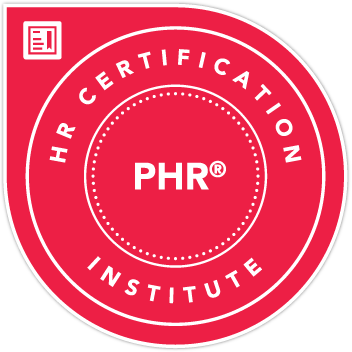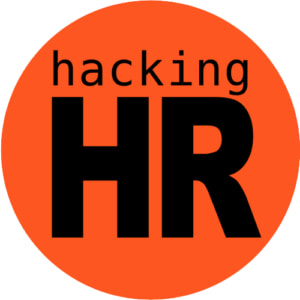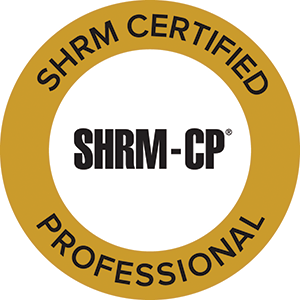|
In the recent Wayne County race for Prosecuting Attorney, I must admit concerns relative to how that office operates, and the positive outcomes that justify keeping the incumbent, Kym Worthy.
Newcomer Victoria Burton-Harris seems to bring new ideas and new energy to what feels like an old, systemic, problem-ladened office. Both candidates have significant points of view, but experience won out in the casting of my vote. This Democratic race (because there are no Republicans that threw their hat into this ring) reminds me of something that can occur in the hiring process, and I thought it's worth sharing. Many companies have moved to an interview as the sole assessment for hiring decisions. I've never been a proponent of a one-rung assessment structure, especially if 1) it's behavior-based interviewing and 2) the hiring managers are not calibrated to recognize bias and the pitfalls associated with consensus assessment reviews. As a certified behavior-based interviewer, I have come to know that the halo/horns effect can impact a candidate's rating when hiring managers are on panels with their superiors. That superiors liking (or disliking) of a candidate based on "non-relevant" factors like alma mater; age; race; gender can seep into the process. What's most important is, does the candidate match both the skills needed today (and in the future) and the values that the organization embodies? Both of our "candidates" would have probably done considerably well on a behavior-based interview with questions like: "Tell me about a time when you had to make an unpopular decision." "Tell me about a time when you failed to accomplish your goal." But what the role in question needs is relevant experience, which requires more than transferable skills. Someone that has never worked in a prosecutor's office or role has to bring more than the ability to problem-solve and cast vision. When you assess candidates, make sure you utilize a composite of various areas of assessment, with experience as an important consideration. Experience is not the only consideration but an important one. There are important roles that will require it.
0 Comments
I've been in Human Resources for a bit now. Seventeen years with the City of Detroit and 24 years overall. One of the things that I know for sure is that "I think for a living, but I live for passion." I ran across a Forbes Article from July 5, 2018 https://www.forbes.com/sites/michalbohanes/2018/07/05/following-your-passion-is-dead-heres-what-to-replace-it-with/#790a4b007f83. Michal, I disagree. Following passion is not dead. "Passion," he goes on to say (citing a Stanford research paper) "pre-supposes that interests and passions are fixed rather than fluid and evolving as we age and gain wisdom and experience." Neither passion nor the interests that fuel them are set. Passion is the explorative journey to align interests with your authentic self, wrapped in your knowledge and motivation to do something WITH those interests and your authentic self. Whether one evolves or leans more into an epiphany of oneself (you had it all along, Dorothy...), passion is never fixed and, therefore, following it only dies when you stay in misalignment. It takes grit to keep fueling passion with interest and motivation, because a small misalignment may seem as if the kindling is fading. I thought that I might review a few of Bohanes' points a bit for a different look at passion. Passion should ignore the market as a pursuit. Some of the best and most innovative ideas come from pursuing that problem, that interest that YOU have discovered. Build a garden around it, and people will find you because there is always somebody moved to a decision by the passion of others. Look at the most notable brands from which you have purchased. Functionality, check. Purpose, check. Passion of founder, check. Think Jobs, Bezos, Jay-Z. Did these founders first search the market or their strengths? Passion makes you pursue things in an area of YOUR interest, not merely the market, and some cases, not the market at all. Assess your strengths, yes, but see them through the eyes of your passion. I've always done very well in math, but my passion, at least one of them, is people. If I had pursued that strength, without passion, I might be one unhappy CPA. Seeing math through the eyes of my passion has allowed me to find problems and gaps and solve them. Some of them. Ok, I had fun trying. You get the point. People will always need accountants, and although I could supply reliable accountancy, my ikigai (my reason for getting out of the bed in the morning) is my passion (interest+ motivations+ developed strengths) for solving people's problems. That's passion gold for me. Bohanes goes on to provide his spin of Maslow's hierarchy of needs: Be physically and mentally healthy; get an income; get a plan, and if you must, follow your passion. My take? You must follow your passion, which means actively pursue your interests and align them with motivation and skill. Then you get a plan that will achieve the highest expression of yourself and purpose. Next, you get an income that supports the life that you are building, and finally, you will be physically and mentally healthy because a real journey of passion requires you to demonstrate excellent self-care. Now that's passion, living passion, worth following. "If I give everything I own to the poor and even go to the stake to be burned as a martyr, but I don't love, I've gotten nowhere. So, no matter what I say, what I believe, and what I do, I'm bankrupt without love." I Corinthians 13, verses 3—7, Message Bible translation.
The blood that runs through our veins is red, and yet for more years than any of us want to know, there has been a marked difference in the value and treatment of people of color. Colored. Black. Negro. Afro American. African American. These markers describe a people whose rights have been segregated and relegated to a lesser class citizenry. Don't get me wrong; we had seen the advancement of our people. With first in many areas, we have accomplished much, but the playing field, the access has never been equal. We have had to be twice as good, twice as early and twice as helpful when we have been recognized, compensated, and appreciated at less than have the rate of our white counterparts. "We have come, oh we have come, over a way that with tears have been watered. Oh, we have come treading our paths through the blood of the slaughtered." From Crispus Attucks to Emmitt Till, from Trayvon Martin to George Floyd and every African American in between, blood has been shed at the hands of vigilante justice that demonizes black people's presence. Red blood on crime scenes; red blood in courtrooms all seen through jaded eyes of green ignorance and fear. Systemic racism is real, and the unconscionable murder of George Floyd on May 25th is yet another dagger in the heart of love. The Minneapolis police brutally murdered him. Served they did; the white police officer Derrick Chauvin kneeled on George's neck for more than 8 minutes while he cried out for his deceased mother and gasped, "I can't breathe." How many more blows should the heart take? Before Floyd, there was Breonna and Ahmaud, who were also the victim of racial injustice in America just a few days apart. Love is always conscious and will not stand by, so how are we going to change people's racist mindset? Red is the color of the day; it's as plain as black and white. So let's apply red to this situation: Can love be a cure for racism? Let's see. Education – we all have some learning to do, and this learning instance will not be successful without open dialogue about the fears, pain, frustration, neglect, and inequity that exists. We can't just fix it; set it and forget it; we must reform the hearts of men, which must begin with ourselves. We must address the systemic racism within us. The pursuit of capitalistic gain for the sole purpose of gain must die. The mentality of building an empire on the backs of slaves must reform to reflect consumers who want conscious capitalism where organizations supply products and services that meet consumer demand while contributing to a social construct that demands equity for all. Here's the personal love manifesto: Educate – Educate yourself and others about experiences of racism and commit to understanding the other perspective for learning. Discussions everywhere must occur like "How do you feel about black people?" "Do you believe that racism exists?" "What are you prepared to do about it?" The iconic Civil Rights Leader Dr. Martin Luther King, Jr. stated, "Darkness cannot drive out darkness; only light can do that. Hate cannot drive out hate; only love can do that." The light must be shone on racism until its exploitation is an epiphany to the ill heart needing a transplant. You will not find someone who truly hates you that doesn't know you unless they fear you. Education is a way to get to know those that are different from you and maybe one of the few ways to legislate the heart. "He that knoweth not God knoweth not love, for God is love." I John 4:7 Participate – Get involved! For some, it will be personal and professional advocacy for the rights of those whose oppression you have witnessed. For others, it will be protests, marches, and aggression demonstrations (boycotts). Still, for some others, it will be voter activation, census participation, economic sanctions, and legislators' lobbying to achieve the correct access. For all, it should be voter participation! You cannot expect to have a seat at the table if you will not vote to take your rightful position. Activate – Ask your church or other organizations to urge banking institutions to publish their track records on minority lending and to increase it by a certain percentage. Find out from your local NAACP what has gotten rid of cash bail requirements for people that 1) have not been proven guilty and 2) who pose no flight risk or harm to society. Encourage your black and white counterparts to shop with you at Black-owned stores, and promote those businesses on your social media channels. Reduce online shopping and circulate a certain percentage of your disposable income in the Black Community. Recommend a qualified black acquaintance that is looking for work to a colleague who can make the hire happen. Help a black acquaintance who is not qualified for that position to upskill or reskill. Build a consortium of business portfolios in every industry, leveraging the power that our collective resources would bring to every decision-making table. The "doing" has been akin to performative allyship, and that's a big problem. We can no longer have good white liberals (or moderates) merely say that they stand with us, but take no action. If they genuinely have love for their darker brother, then it's time for them to take up the cross and fight. Pledging money to fight racism is excellent, but where is that money really going? How about cash bail reform, and while we await that, pay the cash bail of the not-fortunate-enough-to-have-daddy's-good-lawyer-get-you-out-on-bail average black man, living from paycheck to paycheck. I want you all to think about ideas to stop this racism culture. The top 21 ideas will be featured on a LinkedIn Live series of three panels to discuss how we mobilize, strategize, take action, and optimize for results. Start thinking, start implementing, together we can bring a change! "Never doubt that a small group of thoughtful, committed citizens can change the world: Indeed, it's the only thing that ever has." – Margaret Mead |
AuthorPassion Activist, Love Strategist and Composer of Passionate Thoughts Marcus R Holmes Archives
August 2020
Categories |

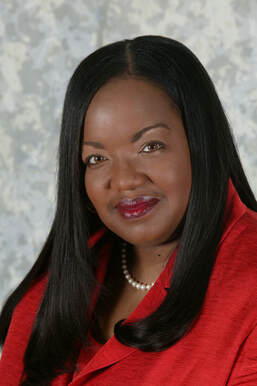
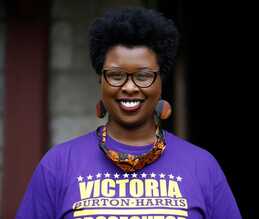

 RSS Feed
RSS Feed
